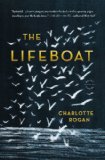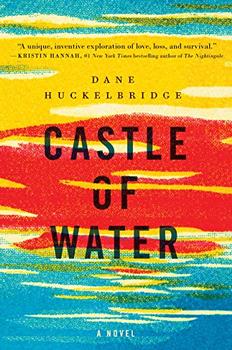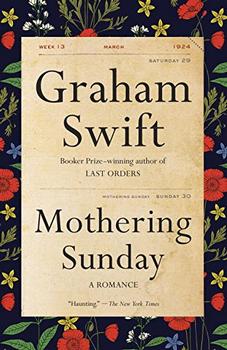Summary | Excerpt | Reading Guide | Reviews | Beyond the book | Read-Alikes | Genres & Themes | Author Bio

A Novel
by Charlotte RoganDo you know what you'd be capable of in an extreme survival situation? This is one of the main themes Charlotte Rogan explores in her novel, The Lifeboat. When human nature is pitted against the impersonal power of the raw elements, can man prevail by use of intellect alone, using only the limited resources at hand?
At first the shipwreck survivors in The Lifeboat feel fortunate to be alive, though they're tortured by not knowing what happened to their loved ones. Their hearts ache in despair as they see the extent of the wreckage from the burning, sinking ship, however they still assume imminent rescue.
The passengers of the lifeboat paddle their oars with all their might to escape the incredible suction created by the ship's sinking. Once free from this initial danger, they are bombarded by desperate, drowning souls who swim for the already over-crowded lifeboat. As they cling to the sides, their weight threatens to overturn the vessel. The oarsmen - one of whom had been part of the crew aboard ship - react quickly, smashing the heads of the swimmers, dooming them to watery graves in the North Atlantic. Out comes primal, human instinct: when survival is threatened, you protect what you have.
The vicious act stuns the other castaways, bringing most of them out of their immediate grief and into the realization that their situation is truly dire. Rogan's characters are made at this point, the strong calling on inner resources, the weak dissolving into hopelessness. Alliances begin forming, opinions turning either for or against the crewman who ordered the oarsmen to kill the hangers-on. Within those alliances natural leaders spring up, chosen without words, the strongest automatically taking the reins.
The female protagonist, Grace Winter, is the book's narrator. A poverty-stricken young woman, newly married to a handsome man from a rich family, she knows that if her husband, Henry, has gone down with the ship, the family she's crossing the ocean to meet may not be so welcoming. Worse still, she's not even sure Henry ever sent them a cable ahead of their arrival. So, where does that leave her?
From here through the end, Rogan considers how the human desire to live polarizes the castaways. At the helm is a shifty-eyed, rough and seasoned sailor. When he insists they're in a major shipping lane and will surely be found sooner rather than later, the majority take his word for it. Duties are divvied up, and the castaways fall into a routine of sorts - with the sailor in charge of dispensing provisions.
Days turn to weeks, and weeks to months. Supplies begin to run dangerously low and the boat is still too heavy. Though a couple passengers have died - their bodies slipped into the sea - more must perish so others may live. But who? And how will this be decided? Will there be enough volunteers or must they devise a way to choose the doomed?
Rogan does a magnificent job keeping the tension tight throughout the book and the sense of place is masterfully accomplished, bringing alive all five senses by way of sharp, well-honed descriptions. The Lifeboat is gripping, edge-of-your-seat fiction that forces the reader to examine his or her own true nature, begging the question, "What would you be willing to do in order to survive?"
A fantastic read and a brilliant take on the deepest recesses of the human mind.
![]() This review was originally published in The BookBrowse Review in May 2012, and has been updated for the
January 2013 edition.
Click here to go to this issue.
This review was originally published in The BookBrowse Review in May 2012, and has been updated for the
January 2013 edition.
Click here to go to this issue.

If you liked The Lifeboat, try these:

by Dane Huckelbridge
Published 2017
Two very different people, one very small island.

by Graham Swift
Published 2017
A luminous, intensely moving tale that begins with a secret lovers' assignation in the spring of 1924, then unfolds to reveal the whole of a remarkable life.
Your guide toexceptional books
BookBrowse seeks out and recommends the best in contemporary fiction and nonfiction—books that not only engage and entertain but also deepen our understanding of ourselves and the world around us.